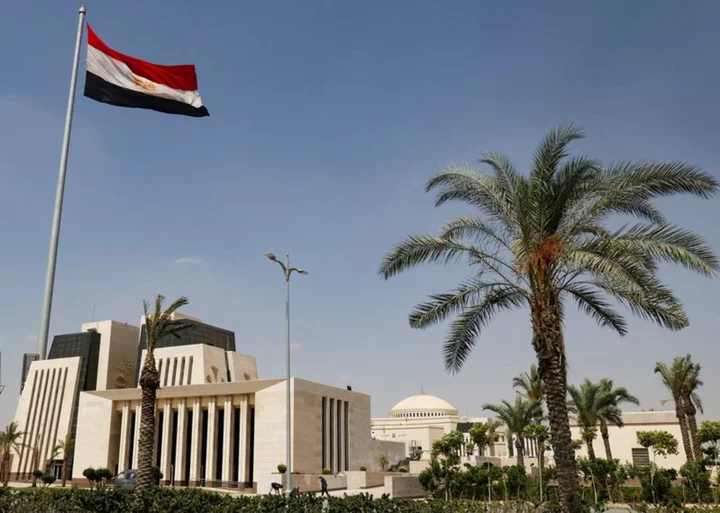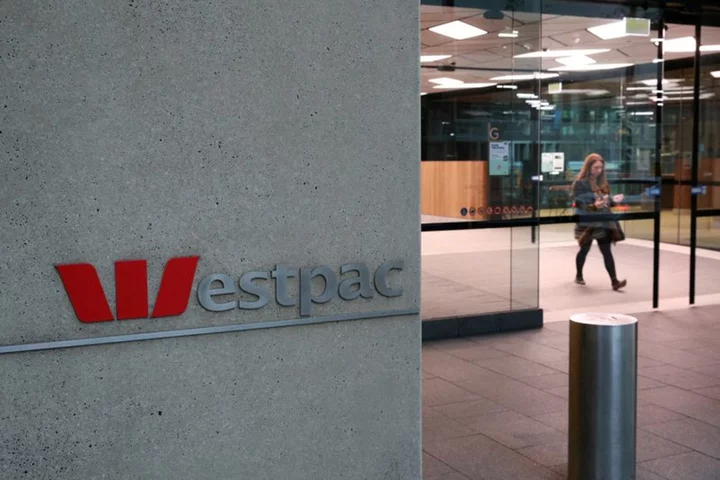By Patrick Werr
CAIRO Egypt risks fuelling its record inflation and putting more pressure on the Egyptian pound if it does not slow an expansion of the money supply which bankers and analysts say has been used to plug widening budget deficits.
Central bank figures show "M1" money supply, which includes domestic currency in circulation and demand deposits in Egyptian pounds, jumped by 31.9% in the year to end-May 2023, after growing 23.1% in the fiscal year to end-June 2022 and 15.7% in FY2020/21.
The sharp acceleration in money supply growth has come during three years in which Egypt's underlying economic weaknesses have been exposed by a series of shocks including the COVID-19 pandemic and the war in Ukraine.
Its finances have been squeezed by a persistent shortage of foreign currency and rising debt, $20 billion of which needs to be refinanced or repaid over the next 12 months.
Spending has meanwhile surged as the state has pursued ambitious infrastructure projects including new cities and a vast expansion of roads while seeking to sustain some subsidies in order to prop up sliding living standards.
The finance ministry is forecasting a budget deficit of 824.4 billion Egyptian pounds ($26.7 billion) in the 2023/24 fiscal year that began on July 1, up from an estimated 723 billion pounds in 2022/23 and 486.5 billion in 2021/22.
Ministry data also shows it expects total expenditure to rise to 2.07 trillion pounds this year from 1.81 trillion pounds in 2022/23.
The rapid creation of more pounds to chase a slower-growing amount of goods and services drives up inflation and further weakens the currency, analysts say.
"Given limited access to external financing and a banking sector that is already heavily exposed to government debt, failure to rein in the budget deficit could lead to increased monetization of the deficit and exacerbate Egypt's inflation and foreign exchange problems," Patrick Curran of Tellimer said.
The central bank and finance ministry did not respond to requests for comment.
INFLATION SURGES
Egypt's headline inflation rate accelerated to 35.7% in June, surpassing the previous all-time high reached in 2017, from 30.6% in April, while core inflation surged to a record 41%.
Earlier this week JPMorgan pushed up its forecasts for the new fiscal year, which ends in June 2024, to 22.7% from 21.3% "due to (inflation) pressure persistence and over FX risks". Core inflation is expected to average 23.5%.
The Egyptian pound's official exchange rate has fallen by half against the dollar since March 2022 and by more on the black market. The FX forwards market sees the pound falling to 40 per dollar over the next year from around 30 now.
Much of Egypt's budget deficit results from rising interest on domestic and foreign borrowing that has mushroomed over the last eight years.
The interest bill worsened after the U.S. Federal Reserve began raising rates in early 2022 and as investors turned away from emerging market debt.
The finance ministry projects that domestic and external interest payments will soak up 52.3% of revenue in the 2023/24 fiscal year.
A $3 billion International Monetary Fund loan confirmed in December will be disbursed over 46 months, though the first review of the programme has been delayed amid uncertainty over Egypt's pledge to move to a flexible exchange rate and raise funds through sales of state assets.
GOVERNMENT BORROWING
Bankers and analysts say a main way the central bank has been expanding money supply is by lending directly to the government, including by purchasing government bonds.
This can be seen in the central bank's "net claims on government", which leapt to 1.48 trillion Egyptian pounds as of end-May 2023 from 1.06 trillion pounds at end-June 2022, central bank data shows.
The local interest rate bill could rise further following a 1,000 basis point increase in the central bank overnight rate since March 2022. The interest rate on a one-year treasury bill jumped to 24.07% at the last auction on July 6, from 14.09% a year earlier.
Over the last five months, Moody's, Standard & Poor's and Fitch have all downgraded Egyptian sovereign debt. In May, Moody's placed Egypt on review for another possible downgrade, citing slow progress with asset sales.
A Moody's downgrade would move Egypt from B3, or "speculative", to at least Caa, or "poor standing and subject to high credit risk". Moody's says such reviews normally take 90 days.
($1 = 30.8500 Egyptian pounds)
(Additional reporting by Marc Jones in London; Editing by Aidan Lewis and Catherine Evans)









